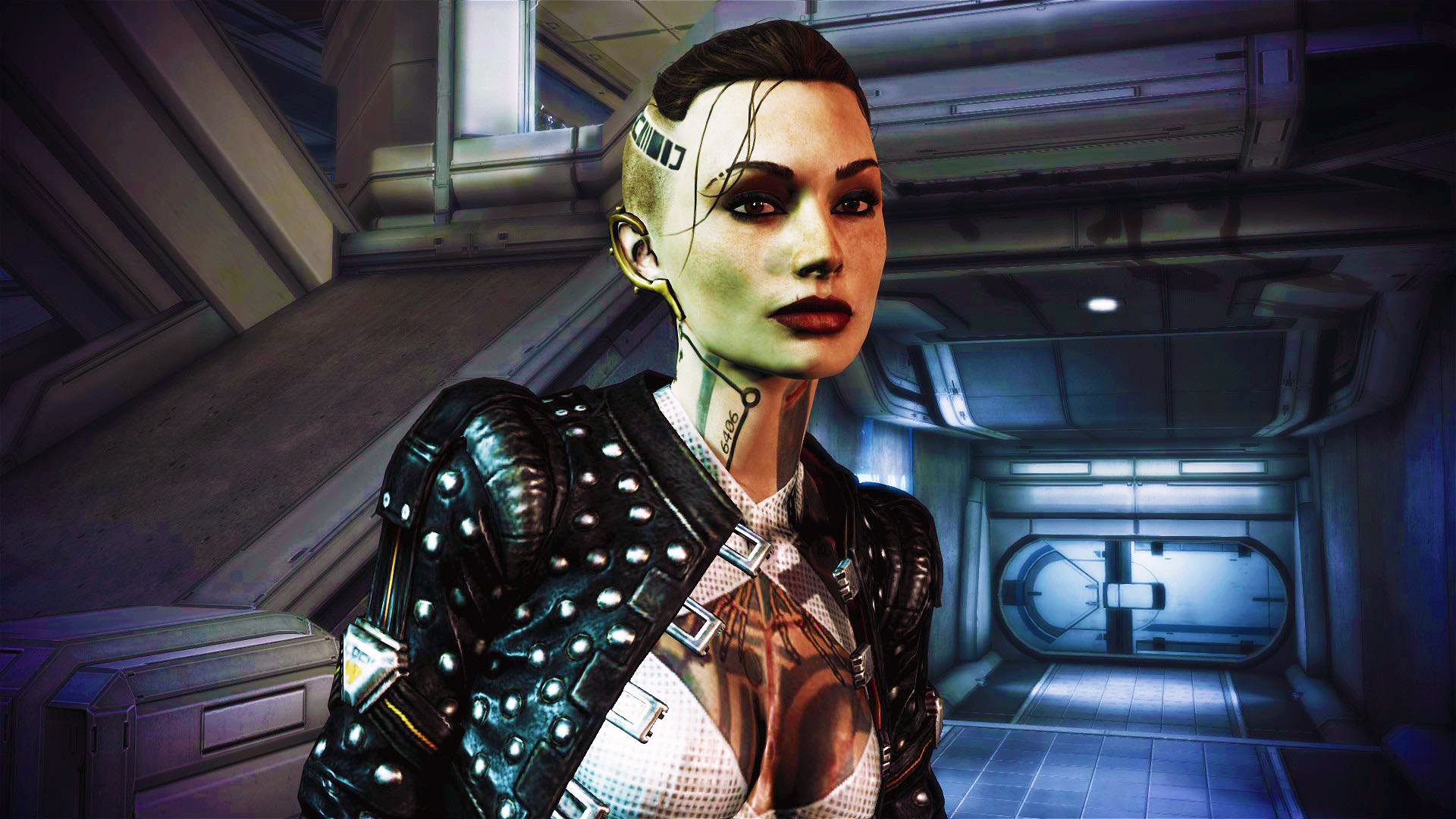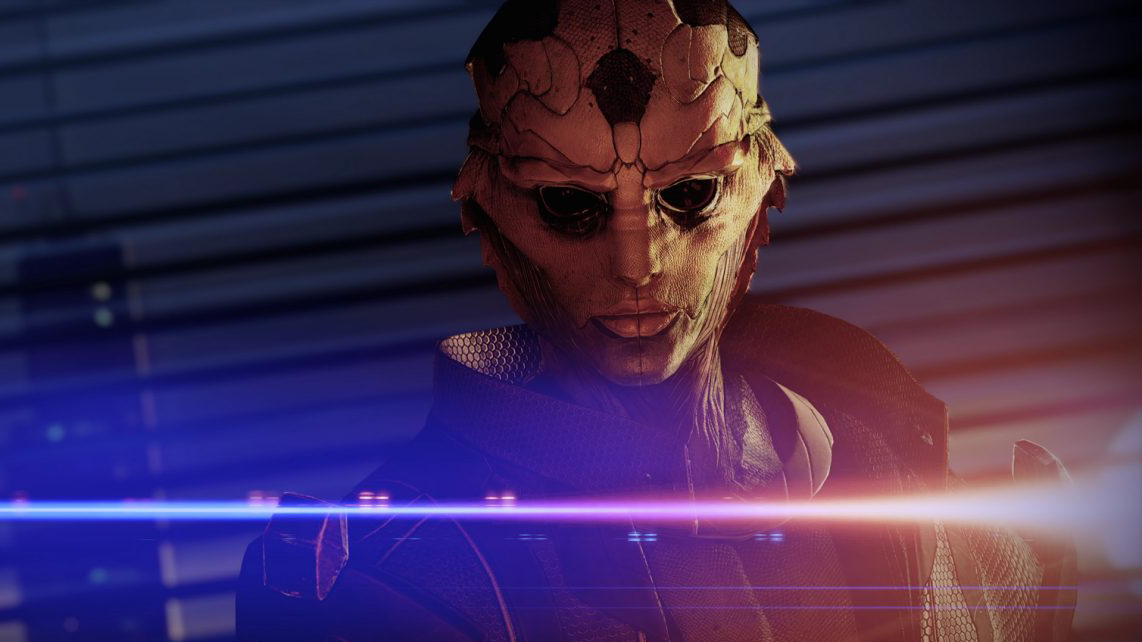Mass Effect Legendary Edition, the exceptional 4K remaster of the original trilogy that we said 'looks great' and 'absolutely flies on modern hardware', is now 90% off
Three legendary games that changed PC gaming forever

The original Mass Effect trilogy remains, to this day, an unparalleled sci-fi action RPG experience. But that isn't surprising considering that Mass Effect was the brainchild of BioWare, the legendary studio that had previously made such PC gaming hits as Baldur's Gate, Neverwinter Nights, and Star Wars: Knights of the Old Republic.
So when the folks responsible for that landmark trilogy spent years lovingly remastering all three games and re-releasing them as the Mass Effect Legendary Edition, a package that included texture, lighting and 4K resolution upgrades, as well as control improvements, bug fixes, and gameplay enhancements, it became the definitive way to play the masterpieces.
So when I saw that the Mass Effect Legendary Edition is currently 90% off—taking its price down to $5.99 in the US and £4.99 in the UK—I thought I would bring it to the PC gaming community's attention. I've played all three remasters, having bought the Legendary Edition at launch, and can confirm that this is the best way to spend a fiver I've seen all year. It's literally hundreds of hours of top-class gaming for very little spend.
Mass Effect Legendary Edition | $5.99/£4.99 (90% off)
A ridiculous amount of top-shelf action RPG goodness, with over 100 hours of adventure on offer, the original Mass Effect trilogy looks better than ever in BioWare's loving 4K remaster. More than 40 DLCs are included, too, while all games benefit from numerous fixes and improvements. A must-play for sci-fi and action RPG fans in my opinion.
As Alan Dexter details in our best settings for Mass Effect Legendary Edition guide, the beauty of the remastered package is not just that all the game's assets have been improved in quality—with more detailed textures, more complex and subtle lighting, as well as a 4K resolution increase—but that key aspects of all three games (but notably the original game) have been overhauled to make them play better.
The original Mass Effect was a great game on release, but it was very much still in the old school of RPGs that BioWare had made before, such as Star Wars: Knights of the Old Republic, playing much slower and coming with unwieldy inventory management and controls. BioWare largely fixed this in Mass Effect 2, moving towards a more streamlined action RPG interface, inventory and control setup, which was then carried into Mass Effect 3. So what the Legendary Edition does is retroactively fit those action RPG improvements back into the original game. This not only makes the first game easier to play, but also makes it feel more coherent as part of the trilogy.

Personally, what I like best about the Legendary Edition is that it includes over 40 DLCs spread over the three games. This means that if you missed out on any of the trilogy's original add-on content (which I did, as I simply couldn't afford it all), then you can enjoy it here without restriction. Those DLCs include weapon, skin, armor, and character packs, as well as full-blown extra missions.
The recommended system requirements for the Legendary Edition are incredibly modest, too, with a Intel Core i7-7700 or AMD Ryzen 7 3700X, 16GB of RAM, 120GB of storage space, and the equivalent of a 4GB NVIDIA GTX 1070, AMD Radeon Vega 56 graphics card required. Honestly, on essentially any modern gaming PC then these games are going to run like butter. The Legendary Edition remasters look stunning, for example, running on my RTX 3090Ti/AMD Ryzen 7 5700X system.
The biggest gaming news, reviews and hardware deals
Keep up to date with the most important stories and the best deals, as picked by the PC Gamer team.
Want to research the Mass Effect series some more? Then be sure to check out our Mass Effect Legendary Edition review, as well as our original Mass Effect 3 review. Now, if you'll excuse me, I think it's time for me to start a new Renegade playthrough.
Rob is editor of PC Gamer magazine and has been PC gaming since the early 1990s, an experience that has left him with a life-long passion for first person shooters, isometric RPGs and point and click adventures. Professionally Rob has written about games, gaming hardware and consumer technology for almost twenty years, and before joining the PC Gamer team was deputy editor of T3.com, where he oversaw the website's gaming and tech content as well its news and ecommerce teams. You can also find Rob's words in a series of other gaming magazines and books such as Future Publishing's own Retro Gamer magazine and numerous titles from Bitmap Books. In addition, he is the author of Super Red Green Blue, a semi-autobiographical novel about games and gaming culture. Recreationally, Rob loves motorbikes, skiing and snowboarding, as well as team sports such as football and cricket.


